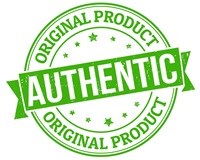Those operating within the retail world need to take a closer look at their authenticity.
I believe that authenticity is one of the biggest trends that will affect sales and profitability in 2014. We've noticed in the retail environment that shoppers are really yearning for authentic experiences and there have been a few retailers already having success with it.
Authenticity in the retail space simply means being original and innovative, true to personality or character and being able to connect with consumers at a personal level.
Examples of authentic retailers
Vida e Caffè is one such example. This coffee chain is known for purchasing its own coffee beans and making its own blends and coffees on site. It has become a global retailer on the back of being authentic. Vovo Telo is another example of an authentic coffee retailer, with the outlet baking its own breads to accompany its menus.
The Woolworths on Nicolway can also be considered as a great example. The store boasts its own fishery, butchery, coffee shop and bakery with experts on site to assist consumers with their purchases and any questions they may have.
The wheel turns and people are beginning to realise that they would rather have a conversation with a baker who knows what the exact ingredients in their breads are, or who is able to provide alternate recommendations on other products.
On the whole and non-processed food side, there has been an explosion of authentic or organic food markets over the years. For instance the Bryanston Organic Market, the Irene Market, Joburg's Newmarket and more recently the Fourways Farmers Market opposite Montecasino are good examples.
A broader look at authenticity
The whole concept of authenticity is a result of people feeling over-connected. We are currently accessible and connected 24/7/365 - perhaps we're beginning to look for more opportunities to live life more authentically off the grid.
In many ways we could consider this move a technology backlash. One very well-known trend setter and reporter, Dion Chang, has identified 'data pollution and the rise of the Buddhist geek' as one of his trends for 2014:
Chang said: "From the daily barrage of emails to the detritus of social media over sharing, we're producing data on a massive scale. It's slowly dawning on us that, just as the industrial revolution produced environmental damage, we too are polluting our virtual worlds, becoming counterproductive professionally as well as having a detrimental impact on our personal lives. As a result, a cyber self-help industry is emerging. 'Digital Detox' is the new buzzword and the concept of Buddhist geeks the rather odd manifestation."
A good example of authenticity is the independent fish and butchery offerings at Dunkeld Centre. In addition, it offers an independent green grocer, bakery etc. It has everything you'd need in terms of an authentic food experience.
Those who are bold enough to develop great concepts will reap the rewards.
The scope for integration
When it comes to non-perishable items, finding authenticity is not impossible. In the clothing sector, authenticity could possibly come in the form of quality. Mr Price is authentic due to the value and quality of its clothing, sport equipment and home goods. That is its way of being true to itself and its customers.
I think there's a lot of scope for retailers and marketers to integrate authenticity into their campaigns. At a recent cook-off promotion at one of our centres, we invited celebrity chefs to take part in the challenge and consumers could get up close and personal with them, while learning how to improve their own cooking skills. Shoppers were also able to gain more knowledge about the fresh ingredients they were using, and had the added advantage of chefs providing one-on-one guidance.
As an international example, take the open market in Chadstone Shopping Centre, Sydney. Here's a market type setting within a closed space such as you'd find a Woolworths or Pick n Pay occupying, but with separate operators like fisheries, fruit and vegetable merchants, bakers etc, all individually owned and managed, cohabiting quite seamlessly under one roof.
As clients of Primedia Lifestyle Marketing Services, we actively drive the authenticity process by engaging with our property landlords, guiding and advising them on the best way forward according to their individual needs. The bottom line is that our business and that of our clients' needs to evolve so that we really get to know who our shoppers are and what they want, what experiences they're seeking out, and provide them with those.
Marketing professionals need to be more strategic in this space and clients need to adapt mall offerings to take advantage of these trends.

























